By Bakari Ssettumba
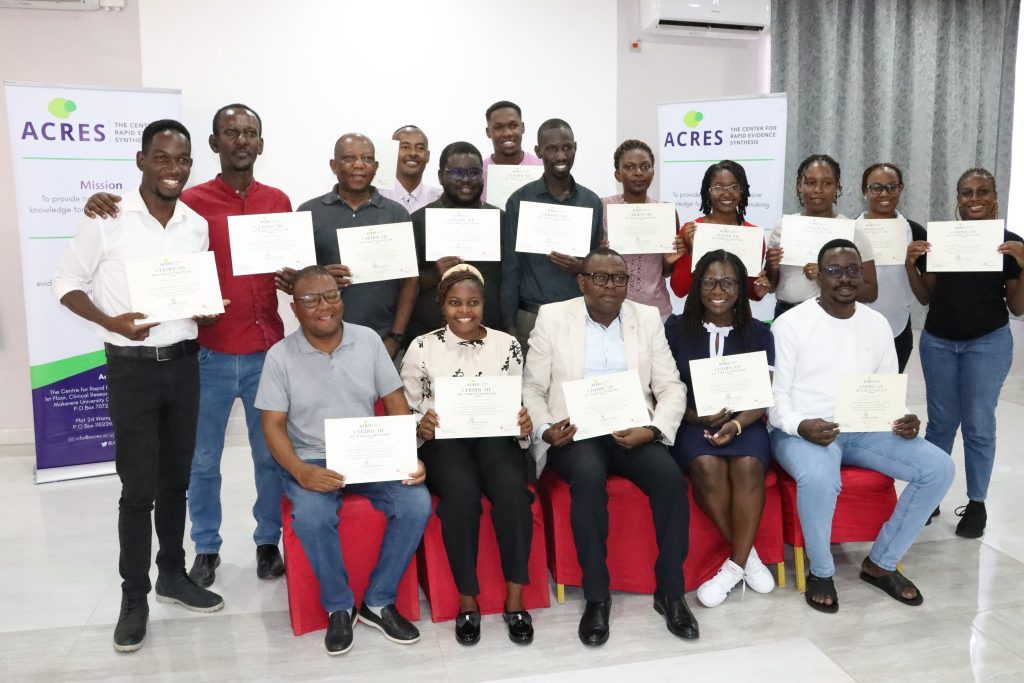
The inaugural cohort of the Evidence to Policy Training Programme – Entry Level, implemented by the Center for Rapid Evidence Synthesis (ACRES), successfully completed their 15-week training with a three-day wrap-up session held from February 24 to 27 at the Horizon Hotel in Entebbe, Uganda.
The programme, designed to strengthen evidence-informed decision-making (EIDM), brought together 19 policymakers and researchers from Uganda, Ethiopia, Malawi, and Tanzania.
Developed under the Learning Together to Advance Evidence and Equity in Policymaking to Achieve the SDGs (Africa LEEPS) project, the training aims to equip evidence intermediaries with the knowledge, skills, and attitudes needed to bridge the gap between research and policy.
The programme focuses on building core technical, cultural, and collaborative competencies, preparing participants to address complex policy challenges and contribute to achieving the Sustainable Development Goals (SDGs).
During the closing ceremony, Dr. Rhona Mijumbi, Executive Director of ACRES, emphasized the importance of collaboration and networking in the EIDM space.
“Your motivation grows from your achievements—celebrate every win. Stay connected; this work is too big to tackle alone. Lean on each other, collaborate, and unlock your collective potential,” she advised.
Her words resonated with participants, who had spent weeks mastering essential EIDM concepts such as evidence synthesis, public policy fundamentals, ethics, and policy evaluation.
Dr. Ismael Kawooya, Head of Office at ACRES and Programme Coordinator, praised the participants for their resilience and commitment throughout the rigorous 15-week training.
“I fully believe that you now have the competencies and tools to succeed. What is needed now is action. You have done the reviews, and we will work with you to complete them. We are with you throughout this journey,” he assured.
Hands-on learning for real-world impact
A standout feature of the programme was its hands-on approach, which saw participants divided into teams to tackle real-life policy questions from their respective countries. Each team included a policymaker, ensuring that the research outputs would be directly applicable to improving lives in Uganda, Ethiopia, Malawi, and Tanzania.
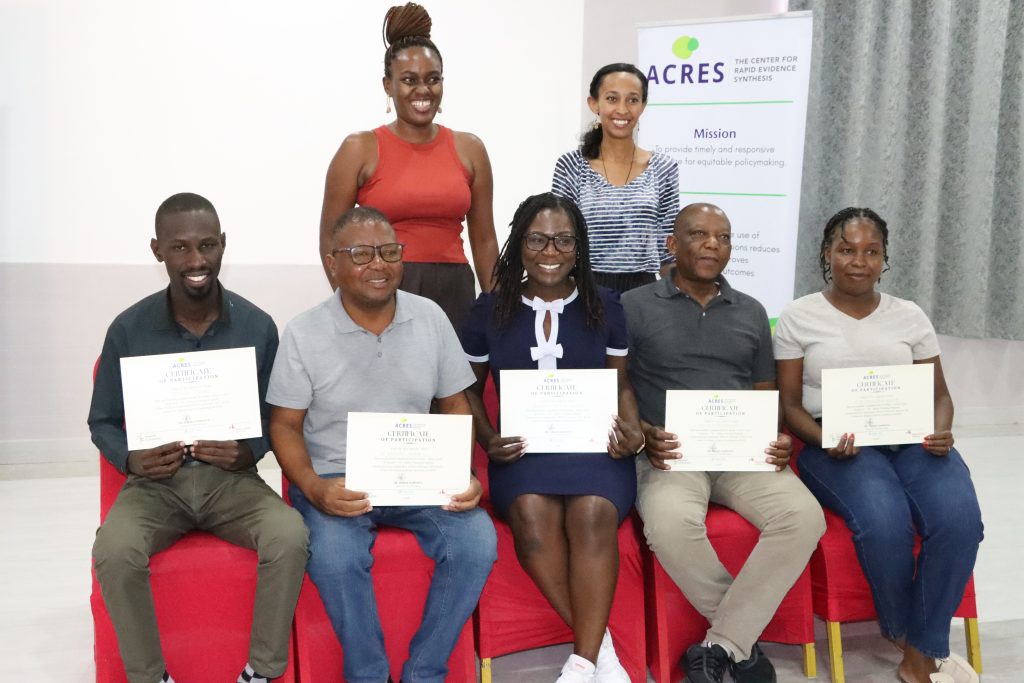
For many participants, the training was a transformative experience that expanded their understanding of EIDM and equipped them with critical skills.
Francis Kizito, a policymaker in the Monitoring and Evaluation Unit of Uganda’s Office of the Prime Minister, shared,
“This programme has enabled us to conduct policy reviews, rapid evaluations, and understand what it takes to make informed decisions. It has fundamentally reshaped how I approach policymaking in Uganda and highlighted the importance of evidence in improving decision-making. It has opened our eyes to what we need to look for when solving problems.”
Bernard Mvula, Chief Health Research Officer at Malawi’s Public Health Institute, noted the programme’s impact on his team. “This training has been invaluable for Malawi. As a Ministry, we previously lacked skills in evidence synthesis. Now, we are equipped to take these skills back home and improve policymaking. We are ready to start evidence synthesis as a Ministry,” he said.
Shimwe Ngeze, a Research Scientist at CeRIHI in Tanzania, highlighted the programme’s comprehensive nature.
“This training has been a profound learning experience. It has taught me teamwork, intellectual rigour, research methodologies, rapid reviews, systematic reviews, and even how to write scoping reviews. It requires dedication, but the rewards are immense,” she noted.
Mid-Level Programme launch in 2025
Building on the success of the Entry Level programme, ACRES plans to roll out the first cohort of the Mid-Level Evidence to Policy Training Programme in the second quarter of 2025.
The Mid-Level programme will focus on the practical application of research knowledge, emphasizing real-world scenarios and enabling participants to navigate complex policy contexts effectively.
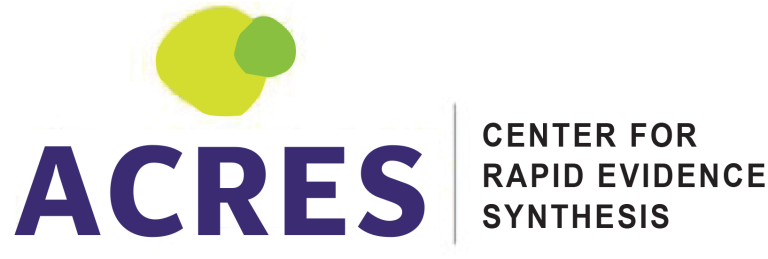
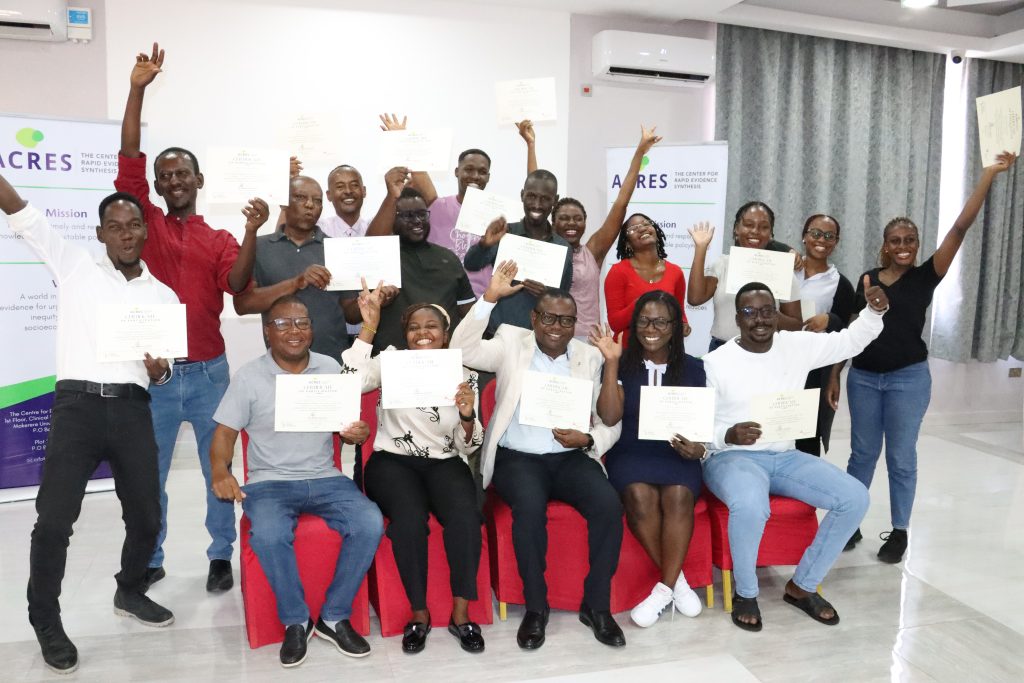

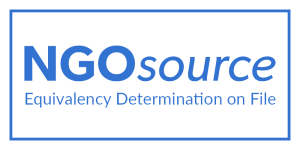
2 Responses
Which countries were represented by the policymakers and researchers participating in the training? Greeting : Sistem Informasi Akuntansi
Hello!
The learners (researchers and policymakers) in the Evidence to Policy (E2P) Training Programme – Entry level are from Malawi, Uganda, Tanzania and Ethiopia.
Thank you